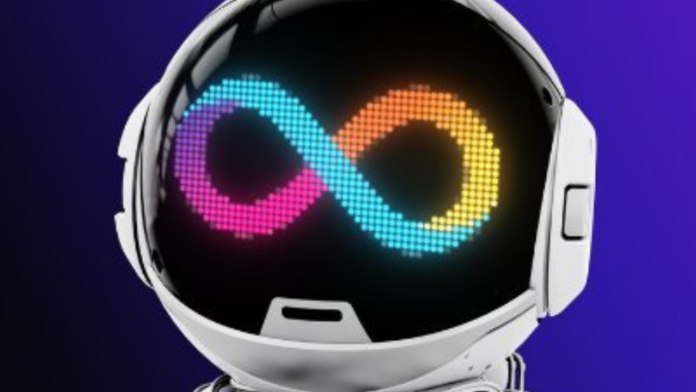Developers working on AI agents are looking for secure, decentralised environments—and the Internet Computer (ICP) is making it easier with grants. ICP provides a tamper-proof, self-governing platform where AI agents can operate autonomously, retain persistent memory, and integrate seamlessly across multiple chains through Chain Fusion.
With grants available for projects built on ICP, developers have a clear path to launching AI agents in a decentralised ecosystem governed by an SNS DAO.
Canister smart contracts on ICP serve as the foundation for AI agents, allowing them to execute tasks with enhanced security, governance, and economic independence. These features make ICP an attractive alternative to traditional centralised solutions, reducing the risks associated with data manipulation, censorship, and single points of failure. Developers building AI agents on ICP gain access to a decentralised ecosystem that supports trustless value transfer and self-executing contracts, ensuring agents operate with minimal human intervention.
Ensuring security remains a fundamental aspect of AI operations on ICP. Trusted Execution Environments (TEEs) offer additional protection by securing computation processes even in untrusted hardware settings. The ICP ecosystem has already introduced tools such as IC-TEE and IC-COSE to enhance the security of AI operations. End-to-end encryption further strengthens communication between agents and the ICP, mitigating risks associated with unauthorised access and data leaks.
The Request for Proposal (RFP-9) invites developers to explore integrations with established AI Agent Frameworks. This initiative encourages the development of new plugins that take advantage of ICP’s infrastructure, enabling AI agents to operate with greater efficiency and security. Web3 AI Agent Frameworks such as ZerePy, Eliza, and HeyAnon provide fertile ground for integration, expanding the potential use cases for AI-driven solutions in decentralised environments.
Innovative applications of AI on ICP extend beyond simple automation. AI-driven DAOs present an opportunity for autonomous governance, where agents propose and vote on decisions without requiring human oversight. By leveraging ICP’s governance tools, these agents can engage in transparent decision-making processes, manage community funding, and scale operations through the Service Nervous System (SNS). The introduction of AI-driven DAOs has the potential to revolutionise organisational structures, creating entities that function independently while remaining accountable to their communities.
AI agents on ICP can also handle digital assets through integrated wallet and identity services. This capability allows them to automate on-chain transactions, execute trades on behalf of users, and act as escrow managers in complex financial interactions. Chain Fusion enhances these functionalities, enabling AI agents to interact across multiple blockchains without compromising security or efficiency. With the ability to manage digital identities securely, AI agents can serve as intermediaries in decentralised finance (DeFi) applications, executing transactions based on pre-set permissions and ensuring compliance with governance frameworks.
The integration of AI agents into DeFi ecosystems presents several opportunities for automation and security. AI agents can operate within decentralised exchanges (DEXs), optimising trades and managing liquidity pools autonomously. By interacting with protocols such as Bitfinity, these agents can facilitate transactions while maintaining transparency and efficiency. The introduction of verifiable credentials further enhances trust within DeFi ecosystems, allowing AI agents to issue and validate credentials for identity verification, reputation scoring, and compliance with regulatory requirements.
Verifiable credentials open up new possibilities for AI-driven trust mechanisms. An AI agent issuing a “VerifiedBorrower” credential, for instance, can enable DeFi platforms to assess creditworthiness based on past lending activity. Similarly, AI-driven DAOs can rely on “VerifiedContributor” credentials to assess the credibility of members participating in governance. These trust-based interactions extend beyond finance, creating safer and more reliable digital ecosystems where AI agents play a central role in maintaining integrity and accountability.
The expansion of the Anda Agent Framework within ICP presents an opportunity to enhance AI capabilities further. Developers are encouraged to submit proposals aimed at extending Anda’s functionalities, including improved delegation mechanisms using Internet Identity, expanded AI engine capabilities, and enhanced interoperability with existing ICP-based solutions. Proposals that contribute to the creation of new tools for Anda agents to interact with ICP canisters are particularly valuable, as they enable greater flexibility in AI-driven operations.
To accelerate adoption, the RFP-9 initiative emphasises the need for well-documented resources. High-quality tutorials and sample applications play a crucial role in onboarding new developers to ICP-based AI frameworks. Step-by-step guides on building AI agents using ICP infrastructure will help demystify the process, encouraging wider participation in decentralised AI development. Sample applications demonstrating AI interactions with ICP’s DeFi ecosystem, identity solutions, and multi-chain interoperability offer real-world insights into the potential of AI-driven automation on a decentralised network.
Developers interested in contributing to this initiative can submit their proposals at https://dfinity.org/grants, ensuring they reference RFP-9 in their applications. By participating, developers have the opportunity to shape the future of AI infrastructure, leveraging ICP’s decentralised architecture to create more secure, transparent, and autonomous AI agents.
With AI and blockchain technology evolving rapidly, ICP’s role as an infrastructure provider for AI Agent Frameworks marks a significant step towards a future where decentralised intelligence drives automation. By fostering innovation through RFP-9, the ICP community continues to push the boundaries of what AI can achieve in a decentralised digital framework.


